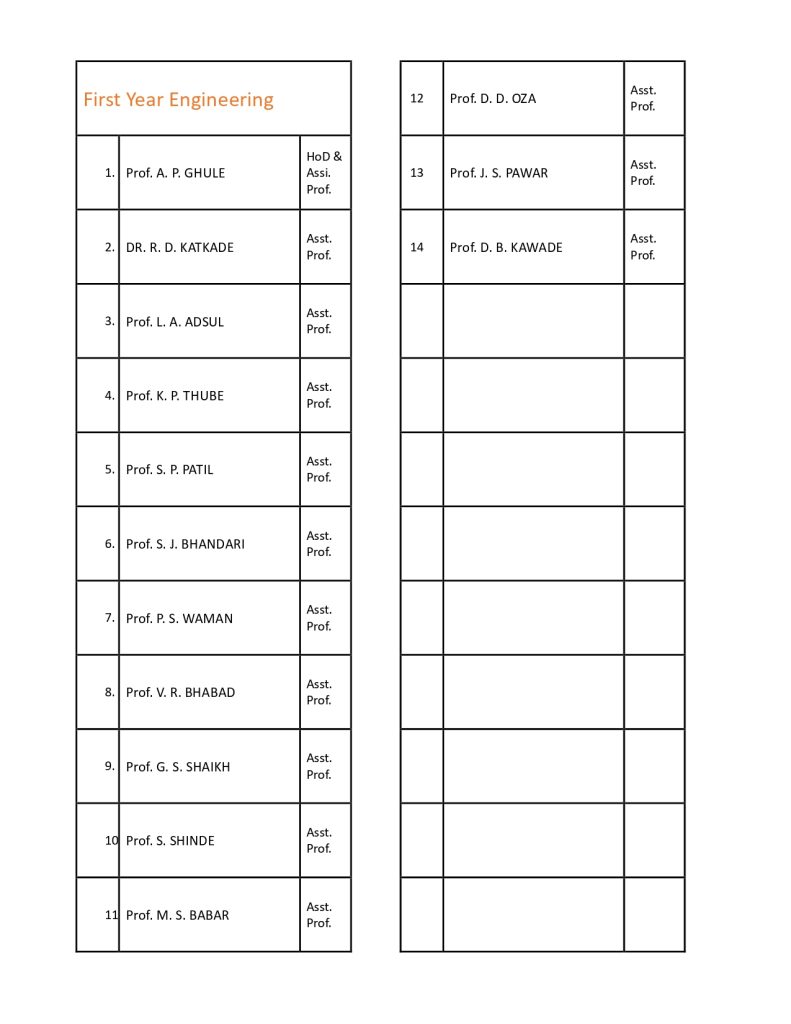PO-1 Engineering knowledge: Apply the knowledge of mathematics, science, engineering fundamentals, and an engineering specialization to the solution of complex engineering Programs.
PO-2 Problem analysis: Identify, formulate, review research literature, and analyze complex engineering problems reaching substantiated conclusions using first principles of mathematics, natural sciences, and engineering sciences.
PO-3 Design/development of solutions: Design solutions for complex engineering problems and design system components or processes that meet the specified needs with appropriate consideration for the public health and safety, and the cultural, societal, and environmental considerations.
PO-4 Conduct investigations of complex problems: Use research-based knowledge and research methods including design of experiments, analysis and
interpretation of data, and synthesis of the information to provide valid conclusions.
PO-5 Modern tool usage: Create, select, and apply appropriate techniques, resources, and modern engineering and IT tools including prediction and modelling to complex engineering activities with an understanding of the limitations.
PO-6 The engineer and society: Apply reasoning informed by the contextual knowledge to assess societal, health, safety, legal and cultural issues and the consequent responsibilities relevant to the professional engineering practice.
PO-7 Environment and sustainability: Understand the impact of the professional engineering solutions in societal and environmental contexts, and demonstrate the knowledge of, and need for sustainable development.
PO-8 Ethics: Apply ethical principles and commit to professional ethics and responsibilities and norms of the engineering practice.
PO-9 Individual and team work: Function effectively as an individual, and as a member or leader in diverse teams, and in multidisciplinary settings.
PO-10 Communication: Communicate effectively on complex engineering activities with the engineering community and with society
at large, such as, being able to comprehend and write effective reports and design documentation, make effective presentations, and give and receive clear instructions.
PO-11 Project management and finance: Demonstrate knowledge and understanding of the engineering and management principles and apply these to one’s own work, as a member and leader in a team, to manage projects and in multidisciplinary environments.
PO-12 Life-long learning: Recognize the need for, and have the preparation and ability to engage in independent and life-long learning in the broadest context of technological change.


Sakeshwar Gramin Vikas Seva Sanstha’s
ADSUL’S TECHNICAL CAMPUS
Approved by AICTE New Delhi| Recognized By Government of Maharashtra DTE and Affiliated to SPPU, Pune
Accredited by NAAC with B++, ISO 9001:2015 Certified


Home » First Year Engineering
OUR VISION
To produce ethical, motivated and skilled engineers through theoretical knowledge and practical applications
OUR MISSION
M1.To impart the ability for tackling simple to complex problems individually as well as in a team.
M2.To develop globally competent engineers with strong foundations, capable of “out of the box” thinking so as to adapt to the rapidly changing scenarios requiring social conscious green computing solutions

MR. GHULE A.P.
First Year Engineering plays a key role in development of the students to be a prospective engineer. The department nurtures and molds the students to enter in the rapid fast changing pragmatic world yet maintaining the sensitivity in them. The teaching-learning methodology used by staff boosts the students thinking potential and lifts their critical analyzing skills. As most of the students come from the diversified social environment it becomes a need for the department that they are mentored by the staff with whom they can share their thoughts, expectations, express themselves and would feel comfortable away from home. For overall development of students we use feedback system of each stake holders which includes tutor meetings in every week, informing the progress of students to parents and corrective actions for aspects where improvement is required. We have total 12 faculties in applied sciences apart of support from department faculty. Hence, our self-motivated staff wholly dedicated to the first year department, do their best and try to make the subjects simple and interesting.
Program Specific Outcomes (PSOs)
PSO-01: Understand, plan, analyse, design and execution of buildings and infrastructures such as residential, public, industrial and irrigation structures, transportation facilities, powerhouses respectively.
PSO-02: Make use of management tools, optimization and leadership techniques to complete the
civil engineering projects within stipulated time and funds.
PSO-03: Contribute to the society for sustainable development through environmental awareness
and upholding professional ethics.
Program Outcome(PO)
